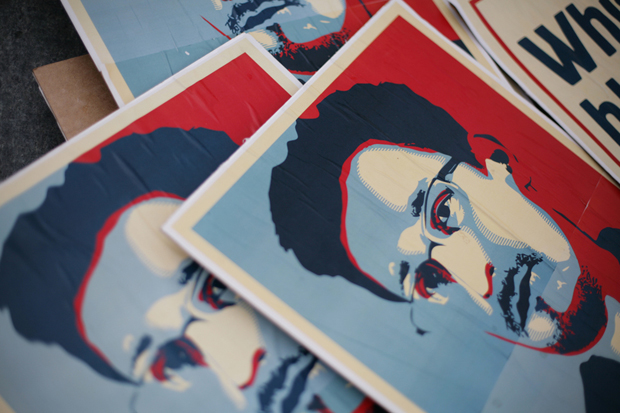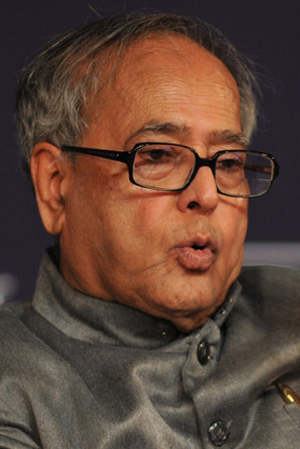25 Sep 2013 | News

(Photo: David von Blohn / Demotix)
This article was originally published at Indy Voices
What’s happened to Edward Snowden and his revelations about the National Security Agency’s surveillance programme? As stories keep emerging from one of the largest leaks in US history, we learn more and more about the Americans’ ability to monitor communications, but seem less sure how to respond. Most people would acknowledge that the state does retain some right to monitor suspect activities. But this is a very different proposition from the population-wide mass surveillance suggested by the documents leaked by Snowden. Clearly the balance has tipped much too far in favour of default data gathering. So how do we move it back?
This is a complex discussion, and it’s not really being had in the UK right now. The Guardian’s Simon Jenkins has suggested an establishment conspiracy has kept the public from talking about this – it’s certainly true that the response here has not been on the level of that in other countries (not least in Brazil, where a national Internet redesign to avoid US surveillance is being considered).
But part of the problem here is not simply that people have been shielded from the discussion on surveillance, or that people don’t care. It is that people do not know what we are supposed to do about this. Who do we appeal to? What do we want?
This is where the European Union can come into its own. An Englishman’s home may be his castle, but nowhere is protection of privacy given more credence than in Brussels and Berlin. A horror of Soviet-style surveillance of citizens runs deep in many European institutions and nation states, particularly those that had hands-on experience. The most powerful person in Europe, Angela Merkel, remember, was a citizen of Stasiland.
The European Parliament’s Civil Liberties, Justice and Home Affairs Committee (Libe), has set out to investigate claims of surveillance and examine what the EU can do about it. UK Labour MEP Claude Moraes has been charged with reporting on the Committee’s findings by the end of the year.
The parliament will be considerably aided by a 36-page briefing by independent surveillance researcher Caspar Bowden, who was helpfully mapped out the history of US and UK surveillance, and overlap with the European Union, all the way back to Alan Turing’s work with US spies in 1942.
Bowden comes up with several recommendations for Europe: the development of a “European cloud”, the revoking or renegotiation of mechanisms that allow US companies to gather data from European users, and, significantly in the case of the Snowden revelations, “systematic protection and incentives for whistleblowers”.
The European parliament investigation is welcome. But in reality, there is only a certain amount the parliament can actually achieve. The real power will, in the end, rest in the will of the governments of the respective European Union countries to act. Europe’s cyber strategy already states that “increased global connectivity should not be accompanied by censorship or mass surveillance”. But it’s time EU leaders acted on this.
That’s why Index on Censorship, along with dozens of other groups, including Amnesty, Reporters Without Borders and the Electronic Frontier Foundation, as well as stars and activists such as Bianca Jagger, Stephen Fry and Cory Doctorow, is petitioning European leaders directly. The next European Council Summit takes place at the end of October. We want every European government head there to publicly take a stand against mass surveillance.
The European Union, founded in part as a democratic bulwark against the authoritarianism of the eastern bloc, has a chance to stand out in the world against surveillance and for the rights of free speech and privacy. In the coming decades, power will be defined by who controls information: Europe, as a powerful democratic force, should work to ensure that its own ordinary citizens and people around the world are not left impotent.
Sign the petition telling EU leaders to stop mass surveillance here
25 Sep 2013 | India, News, Politics and Society

India’s President Pranab Mukherjee (Photo: Wikipedia)
In September 2013, India’s President Pranab Mukherjee spoke about the inviolable right to privacy that citizens of India must enjoy, at the annual event of the Central Information Commission (CIC), a body constituted by India’s Right to Information Act, 2005.
Both the Act and the CIC have empowered ordinary citizens to submit applications requesting information from government bodies, injecting a new phase of transparency in an infamously opaque bureaucracy. In fact, the RTI Act has been born of, and has encouraged, large RTI ‘movements’, that have exposed layers of corruption in numerous schemes across various government departments.
For citizens, the fact that a government official has to release information regarding budgets, forms, decisions and other facets of public governance has led to the belief that unchecked corruption might finally simmer down, and that they are not longer helpless against the system.
However, as the RTI movement has matured over the last decade, serious questions of privacy protection have also started making their way into public discourse. The Act itself excludes a number of security and police agencies from having to divulge any information, and private companies and NGOs do not fall under the Act.
However, political parties that do fall under the act are furiously trying to legislate their way out from under the scanner. In fact, this move, supported by the ruling government that helped bring in the RTI has attracted a lot of criticism and well earned scepticism from the public. In a report on the matter, one of India’s biggest English news channels, NDTV, wrote, “The government decided to amend the law after political parties opposed the Central Information Commission’s order in June that six political parties including the Congress and the BJP will be under the RTI as they were substantially funded by public money. This would mean political parties would have to disclose campaign funding or how members voted during a secret ballot.” Indicative of the mistrust between government and the public, the report was called ‘Divided on everything else, political parties unite against RTI Act.’
Therefore, when the conversation turns to a conflict between the right to information and privacy, in India, it can often become muddled. It can seem that wrongdoers might attempt to hide behind the excuse of ‘privacy’. However, there is no escaping that protecting individual privacy is a genuine concern.
Many countries across the world that have enacted national RTI Acts also have privacy laws that carefully spell out the limits to which information about individuals can be disclosed. In general, information about personal life, sometimes including medical information, is exempt from RTI. Should names be revealed from all official documents, are all court proceedings public? And finally, do some people necessarily lose some privacy because of a ‘public interest’ test?
The World Bank Institute released a paper that describes RTI and privacy as “two sides of the same coin, essential human rights in modern information society.” It also goes on to add that, “privacy laws can be used to obtain information in the absence of RTI laws and RTI can be used to enhance privacy by revealing abuses,” and that both have been designed for accountability.
India does not have a privacy law in place right now, although what should be in the law has attracted considerable debate. Therefore, the contours of privacy in the RTI gambit have resulted from various decisions and court orders given over the years. For example, in 2011, the then chief information commissioner of the CIC informed India’s Reserve Bank of India that it had to reveal information, even if it meant public confidence in the institution might be adversely affected. And, as recently as early September 2012, the Mumbai High Court ruled that “disclosure of personal information in respect of service record, income tax returns and assets of an individual is illegal unless it is necessary in larger public interest.” This judgement protected the individual against any disclosure that had nothing to do with public interest, but instead caused unwarranted invasion of privacy.
There have also been reports that some RTI applications are filed only to be a nuisance, with cases of RTI being used to blackmail public officials, with the threat of burying them under paperwork. In April 2013, one applicant was fined for filing over 100 applications.
Moving ahead, President Mukherjee’s speech indicated that public authorities should be proactive and voluntarily put information in the public domain for the use of citizens, effectively inculcating a culture of transparency from the beginning.
However, until that happens, one can assume that the citizen will most certainly have to rely on the RTI for full disclosure about its government’s activity, and the government will have to be wary of those using RTI applications for ulterior purposes. Most importantly, the individual right to privacy should not be lost in this paper war, between the two sides of the same coin.
This article was originally posted on 25 Sept 2013 at indexoncensorship.org
25 Sep 2013 | Uncategorized
Nelson Mandela’s legacy has been “too easily dismissed”, South African editor Nic Dawes tells Index on Censorship magazine in the latest issue.
In an interview for the magazine, Dawes, who has just left his job as editor at South Africa’s Mail & Guardian for a new job at the Hindustan Times, said: “His legacy is being brought back to us.”
South Africa was going through a phase when the people who brought us press freedom “now seek to restrict it”.
“We are going through a very classical process, what happens when a liberation movement has been in power for a while and starts to see its hegemony challenged and then reaches for a convenient lever to limit that challenge.”
Read the full interview with Nic Dawes in the new issue of Index on Censorship magazine.
Listen to the podcast below or click here.
25 Sep 2013 | News, Religion and Culture

A publicity shot from Lucien Bourjeily’s latest play
Banning a work of art, a book or a play says more about a society and its temperament than anything else. As free speech and readers mark Banned Books Week, Index on Censorship magazine editor Rachael Jolley looks at Lebanon, where the country’s Censorship Bureau has recently flexed its muscles
In the past few weeks, Lebanese playwright Lucien Bourjeily has had his play Will It Pass or Won’t It? banned by his government. Ironically, the play is about censorship, specifically the process in Lebanon whereby plays are passed by the Censorship Bureau of the General Security Office — or not performed.
Bourjeily’s play dramatically challenged that process. But the censors did not see the funny side of his finger poking at a system that involves playwrights putting their words through the wringer of a censorship process, before being squeezed out again.
The censors came up with a variety of reasons why the play should not be shown, ranging from it not being “realistic” (surely missing the point of fiction there), to it not being good enough. Those in charge decided it was not for the people to decide whether it was worthy of their time, it was for them. And with that the play was to be banned.
Banning a work of art, a book or a play says more about the society and its temperament than anything else. Some nations are less than confident about themselves; they are clearly worried that if their ideas are questioned they will be weakened and their power diminished. Ban a book or a play if you worry that by talking an idea or a principle that discussion will somehow harm society. If you don’t worry about your values, principles or laws being discussed since you are perfectly willing and able to defend them, then there is no need for a work of art, book or play to be censored.
A robust, vibrant and creative society is a place where open discussions can take place, and Index on Censorship magazine, throughout its life, has often helped publish some important writings which were censored in other parts of the world, and smuggled out to Index. When the Soviet Union still existed, great thinkers there were censored and silenced, and Index helped their voices to be heard. Today it still seeks to help publish those whose words and ideas are silenced by their own governments. In its winter edition it will publish an extract from Bourjeily’s play so that readers can make up their own minds about whether it is worth performing.
Healthier societies do not hold back debates, even when they may disagree with them. They allow them oxygen to see how worthy of consideration they are. Ideas can shock or offend. Robust societies can cope with that, and even feel healthier for it.
Prodding and debating, as any writer, politician, thinker, inventor or scientist knows, is good for an idea or a thesis; it might be flawed, disproved or ignored. Or not. In the same way that scientists depend on their ideas being tested to see if they work and should be developed, leaders of nations should expect their proposals, their laws or processes to be prodded, debated and discussed. And that is what happens in a book or a play.
In a recent interview, Bourjeily said he felt that the Lebanese were treating their people as children, not allowing them to make their own decisions. Because of that, they were no longer expressing ideas in public, because of the consequences. They are self censoring, they are not exploring. None of that is good for any developing society. Inventors and scientists are attracted to those vibrant centres as are artists and writers. Across the world and throughout history those buzzing hives of thought have led the globe financially and culturally. As ever an open lively society attracts the world’s leading thinkers and creators, a place where censorship and fear is rife does not. Leaders of the world take note.
Rachael Jolley is editor of Index on Censorship, an award-winning magazine, devoted to protecting and promoting free expression. International in outlook, outspoken in comment, Index reports on free expression violations around the world, publishes banned writing and shines a light on vital free expression issues through original, challenging and intelligent commentary and analysis, publishing some of the world`s finest writers.
To mark Banned Books week, Index’s publisher SAGE has freed up access to the full archive of Index on Censorship through 28 Sept. Access articles here: http://ioc.sagepub.com/
This article was originally posted on Sage Connection




